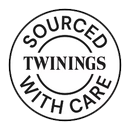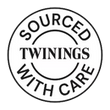News
Investing in Women’s Health through Tea Supply Chains

Twinings has partnered with the U.S. Agency for International Development (USAID)’s Sustaining Health Outcomes through the Private Sector (SHOPS) Plus project to address the lack of access to adequate health facilities for tea farmers in Kenya.
The Challenge
Globally, women account for 43% of the agricultural workforce. In low- and middle-income countries, agriculture is the most important source of employment for women and make up the majority of the workforce in our supply chain.
Many women agricultural workers lack access to the basic health services needed to live healthy, productive lives. Most are low wage smallholder farmers who are not covered by on-site employer health programmes; others work on remote plantations located far from health facilities.


"Women have unique health needs and play a key role in international supply chains and in their families’ wellbeing and community development. We believe better access to healthcare for women is therefore crucial to drive change in our supply chain and to help deliver on the SDGs."
Celine Gilart,
Global Head of Social Impact, Twinings
The Opportunity: Investing in Women’s Health
Investing in the health and well-being of women workers creates value for businesses and the broader communities in which they operate. Research shows that when women access family planning and reproductive health services, it creates a ripple effect for healthier populations, reduced poverty, increased gender equality, improvements in education, and increased economic opportunities
By reducing absenteeism and turnover and improving productivity, investments in workers’ sexual and reproductive health also bring an economic return on investment for companies of up to $4 saved for every $1 invested.
Hear from April Warren, Senior Technical Advisor at Abt Associates on our partnership.


The Project
In Kenya, we partnered with USAID’s SHOPS Plus project to develop and pilot a model to expand access to women’s health services on the tea farms from which we source, including expanding access to women’s and children’s health products and services.
Together, we refurbished Chepsire Health Dispensary, an existing local public health facility that offers convenience for tea workers and strengthened it to deliver more services that women need.
To ensure the model’s sustainability, SHOPS Plus and Twinings brought in diverse local partners to co-design and co-implement the pilot model. The local partners include social enterprise Afya Research Africa, smallholder farmer cooperative Sireet Outgrowers Empowerment & Producer Co Ltd., tea producer Eastern Produce Kenya, the Nandi County government, and community groups.
This multi-stakeholder participation is integral to achieving success in the pilot and for future sustainability. Local partners contributed resources to expand the capacity of the community health facility.
It takes more than the infrastructure of the facility to ensure access to healthcare; local ownership and accountability is vital to increasing long-term access.
The model strengthened an existing women’s saving group (Chepkiwen women’s group), and formally links the group to the financial and operational oversight of the health facility. The women’s group’s dual financing and oversight role aligns incentives so that the community is invested in the success of the facility, and the facility prioritizes the community’s needs.
With our pilot complete, Chepsire Health Dispensary and our many local partners will continue to provide access to services for women tea workers.
Our Impact
- A continuously operating, enhanced public facility that offers additional services and longer hours to serve the community
- Over 10,300 services provided since October 2020, 4786 to adult women
- 468 women provided with long-term family planning methods
- Facility estimated to deliver over 45,000 services over 5 years


